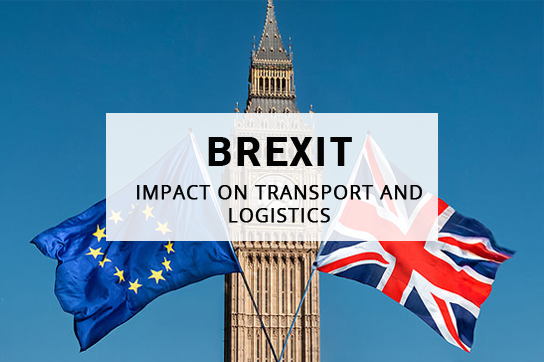The European Parliament has just given its agreement this Wednesday, January 24, 2020: the United Kingdom will leave the European Union on February 1, 2020. A new period of negotiations will then open until December 31, 2020 during which must be discussed future relations between the United Kingdom and the EU.

During this period, which may be renewed for a maximum of one year twice (subject in principle, that this decision is taken before 1 July 2020 for the first), the United Kingdom, although legally outside the EU, will continue to benefit from the Community acquis and the free movement of goods, without participating in Community duties or being involved in decision-making processes.
TRANSPORT IMPACT?
During the transition period, the situation will not change for transport, by sea, by land or by air, for passengers and for goods.
On the customs front, there will therefore be no change in relations with the United Kingdom on February 1, 2020: flows therefore continue to be made on the basis of the declaration of exchange of goods.
The rest will be defined during negotiations on the future relationship. Relatives of the file do not exclude that the contingency measures that Brussels had prepared to ensure the continuity of transport in the event of a Brexit without agreement emerged at the end of 2020 for lack of time to agree by then.
A COMPLEXITY FOR THE CIRCULATION OF PALLETS?
The enormous quantities of wooden pallets which are used for intra-European trade in goods may, after their dispatch to Great Britain, no longer be able to return to the Union, due to health regulations for third countries. Unless ad hoc processing is difficult to organize.
In the current state of the regulations, the pallets coming from the continent will always be able to enter as before in Great Britain, but they will not be able to cross the English Channel on the return! In order to protect against attacks by invasive insects or fungi, these assemblies of softwood boards must, in principle, be stamped with an international standard known as ISPM15. Nevertheless, it turns out that Europeans generally use untreated wood inside the continent and that they apply the stricter standards only towards third countries.
However, it is these latter rules that should apply from January 2021 to pallets returning from Great Britain, de facto considered as a third country. Even for a basic empty return of French, Spanish or Polish trucks. "They can simply no longer be placed on European soil," predicted an expert. Reflecting very important trade, "more than 3 million pallets move each month between the United Kingdom and the EU and less than a third would respect WTO standards", according to the specialized site Actu Transport Logistique. For volume reason, time and additional cost to be taken into account, the problem remains until the creation of a zone of sanitary safety.
Sources :
- les Echos 01/30-31/2020
- Direction Régionale des douanes d’Orly



